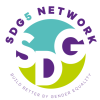The relationship between development and gender refers to the intricate interconnection of gender dynamics with economic, social, and political processes, significantly influencing the outcomes of development initiatives. This relationship recognizes that development impacts individuals differently based on their gender, taking into account societal norms, roles, and power structures. Gender considerations are crucial in understanding how development policies and programs can either reinforce or challenge existing inequalities between men and women. In the context of development, addressing gender disparities involves promoting equal opportunities, dismantling discriminatory practices, empowering women economically and socially, and ensuring that policies are responsive to the diverse needs and experiences of both men and women. Integrating gender perspectives into development efforts contributes to more equitable and sustainable outcomes, fostering inclusive societies where all individuals can fully participate and benefit from the development process.
Echoing the existing literature on gender and development, the SDG5 Network asserts that genuine development cannot be attained by marginalizing or overlooking the needs and contributions of women and girls. Recognizing the intrinsic link between gender equality and comprehensive development, the SDG5 Network emphasizes the importance of inclusive policies and initiatives that prioritize the empowerment and well-being of women and girls. This advocacy aligns with the broader understanding that sustainable and equitable development requires a commitment to dismantling gender-based disparities, ensuring that all individuals, regardless of gender, have equal opportunities to participate in and benefit from the development process.

